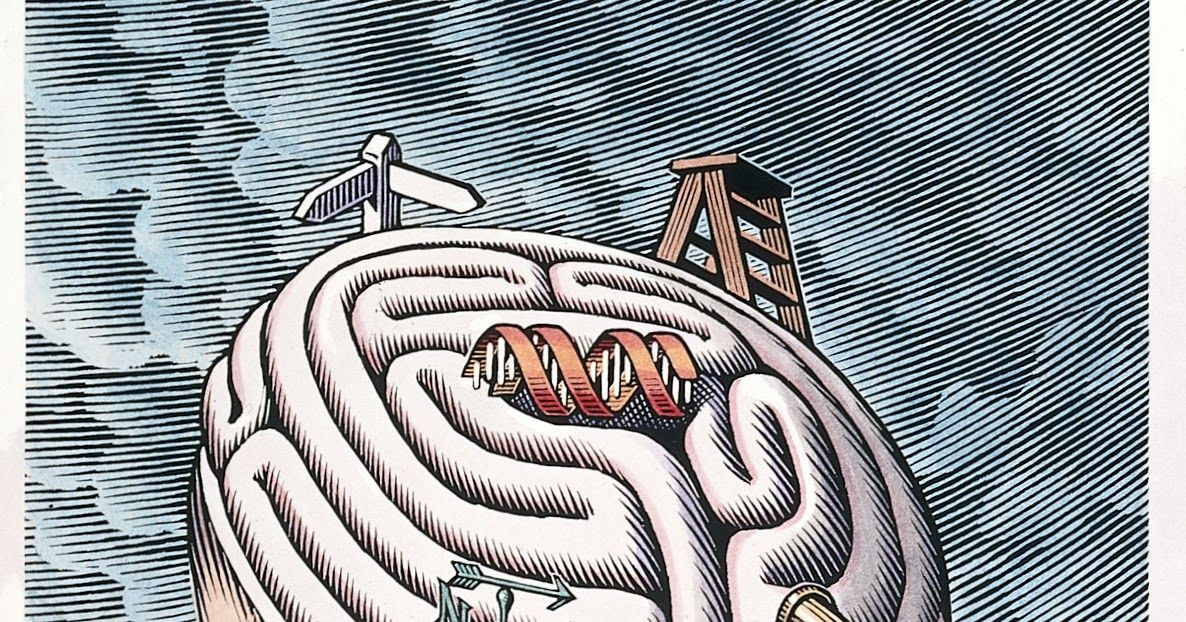Archive for the ‘ethics’ category: Page 46
Nov 15, 2018
Are Killer Robots the Future of War? Parsing the Facts on Autonomous Weapons
Posted by Mike Ruban in categories: ethics, robotics/AI
Under what circumstances should militaries delegate the decision to take a human life to machines? It’s a moral leap that the international community is grappling with.
Nov 14, 2018
Privacy concerns as Google absorbs DeepMind’s health division
Posted by Carse Peel in categories: biotech/medical, ethics, health, privacy, robotics/AI
Privacy advocates have raised concerns about patients’ data after Google said it would take control of its subsidiary DeepMind’s healthcare division.
Google, which acquired London-based artificial intelligence lab DeepMind in 2014, said on Tuesday that the DeepMind Health brand, which uses NHS patient data, will cease to exist and the team behind its medical app Streams will join Google as part of Google Health.
It comes just months after DeepMind promised never to share data with the technology giant and an ethics board raised concerns over its independence.
Continue reading “Privacy concerns as Google absorbs DeepMind’s health division” »
Oct 28, 2018
Should a self-driving car kill the baby or the grandma? Depends on where you’re from
Posted by Michael Lance in categories: ethics, robotics/AI, transportation
Who should a self-driving car kill?
The infamous “trolley problem” was put to millions of people in a global study, revealing how much ethics diverge across cultures.
Oct 23, 2018
Biohackers Are Implanting Everything From Magnets to Sex Toys
Posted by Derick Lee in categories: bioengineering, biotech/medical, bitcoin, business, cybercrime/malcode, cyborgs, ethics, health, internet, robotics/AI, sex, transhumanism
Biohacking raises a host of ethical issues, particularly about data protection and cybersecurity as virtually every tech gadget risks being hacked or manipulated. And implants can even become cyberweapons, with the potential to send malicious links to others. “You can switch off and put away an infected smartphone, but you can’t do that with an implant,” says Friedemann Ebelt, an activist with Digitalcourage, a German data privacy and internet rights group.
Patrick Kramer sticks a needle into a customer’s hand and injects a microchip the size of a grain of rice under the skin. “You’re now a cyborg,” he says after plastering a Band-Aid on the small wound between Guilherme Geronimo’s thumb and index finger. The 34-year-old Brazilian plans to use the chip, similar to those implanted in millions of cats, dogs, and livestock, to unlock doors and store a digital business card.
Kramer is chief executive officer of Digiwell, a Hamburg startup in what aficionados call body hacking—digital technology inserted into people. Kramer says he’s implanted about 2,000 such chips in the past 18 months, and he has three in his own hands: to open his office door, store medical data, and share his contact information. Digiwell is one of a handful of companies offering similar services, and biohacking advocates estimate there are about 100,000 cyborgs worldwide. “The question isn’t ‘Do you have a microchip?’ ” Kramer says. “It’s more like, ‘How many?’ We’ve entered the mainstream.”
Continue reading “Biohackers Are Implanting Everything From Magnets to Sex Toys” »
Oct 19, 2018
Disruptive technology and organized religion
Posted by Mike Ruban in categories: ethics, robotics/AI
Even in the era of AI and gene splicing, religious leaders have much to contribute in terms of moral compass and meaning.
At a recent Vatican-sponsored conference, I learned that disruptive technology and organized religion have more in common than not.
Oct 17, 2018
What can neuroscience tell us about ethics?
Posted by Mike Ruban in categories: ethics, neuroscience
Today on The Neuroethics Blog is a post by Adina L. Roskies, Professor of Philosophy and chair of the Cognitive Science Program and Helman Family Distinguished Professor at Dartmouth College, entitled “What can neuroscience tell us about ethics?”
By Adina L. Roskies Image courtesy of Bill Sanderson, Wellcome Collection What can neuroscience tell us about ethics? Some say nothing – ethics is a normative discipline that concerns the way the world should be, while neuroscience is normatively insignificant: it is a descriptive science which tells us about the way the world is. This seems in line with what is sometimes called “Hume’s Law”, the claim that one cannot derive an ought from an is (Cohon, 2018). This claim is contentious and its scope unclear, but it certainly does seem true of demonstrative arguments, at the least. Neuroethics, by its name, however, seems to suggest that neuroscience is relevant for ethical thought, and indeed some have taken it to be a fact that neuroscience has delivered ethical consequences. It seems to me that there is some confusion about this issue, and so here I’d like to clarify the ways in which I think neuroscience can be relevant to ethics.
Oct 16, 2018
The Nature of Indefinite Life Extension in Context of Immanuel Kant’s Insights on Ethics and Duty
Posted by Eric Schulke in categories: ethics, futurism, life extension, philosophy
Is working to pioneer the full scope of everything that exists a duty? I have been contemplating aspects of that question for some years now. Here I move in the direction of articulating its nature and making the case by drawing out correlations with life extension and Immanuel Kant’s thoughts in The Metaphysical Elements of Ethics.
“IV. What are the Ends which are also Duties? They are: A. Our own perfection, B. Happiness of others.”
His notion of “categorical imperative” is that of a universally applicable, non-contradictory, absolute necessity which everyone can use pure practical reason to understand without it needing to be experienced or taught to them.
He says that “ethics may also be defined as the system of the ends of the pure practical reason.”
Oct 2, 2018
Movement for Indefinite Life Extension 2018 Drive to Stay Alive Message
Posted by Eric Schulke in categories: aging, bioengineering, ethics, existential risks, futurism, life extension, philosophy, transhumanism
The universe is filled with uncountable amounts of mystery, discovery, opportunity, experiences, marvels and more. So, let’s not die if we don’t have to.
It’s much harder to make the case that radical longevity cannot be engineered into our biology than that it can. Humanity engineers cells in countless ways all the time now, and our knowledge, capability and tools keep growing exponentially.
Now, a mainstream amount of demand to create a bustling global industry of life extension R&D is the only thing standing between you and the ability to live indefinitely.” — Eric Schulke
Fifteen thousand years worth of Netflix are watched every day. Fifteen billion dollars are spent on the Super Bowl and fifteen billion dollars are spent on Valentine’s day. Those aren’t bad things but we need some perspective. Survival is humanity’s main and oldest occupation. We have what it takes to survive if we pay attention and get with the program.
Continue reading “Movement for Indefinite Life Extension 2018 Drive to Stay Alive Message” »
Sep 27, 2018
SpaceX’s BFR and Raptor deemed “science-fiction”
Posted by Genevieve Klien in categories: Elon Musk, ethics, space travel
Speaking in a September 7th interview with French newspaper Courrier International, Dr. Francis Rocard – director of French space agency CNES’ solar system exploration program – had little good to say about SpaceX and CEO Elon Musk’s long-term ambitions in space, going so far as to question the CEO’s driving ethics and label the company’s next-generation rocket and propulsion system “science-fiction”.















